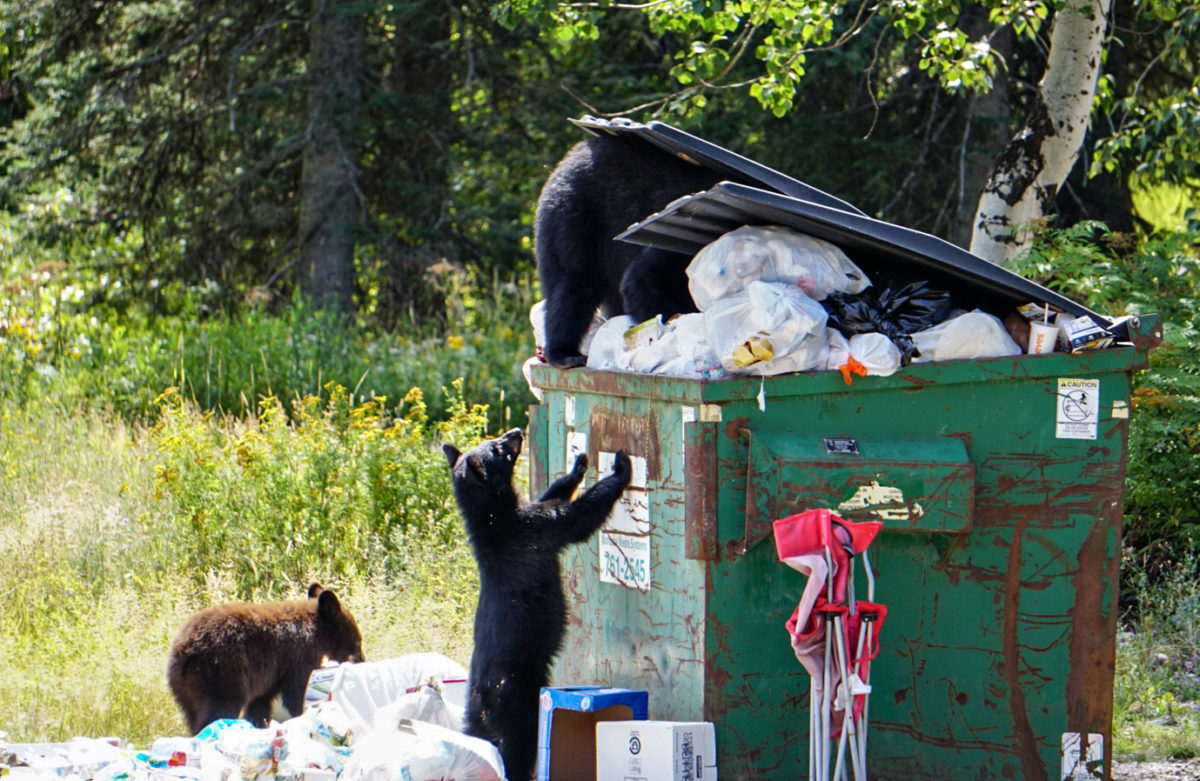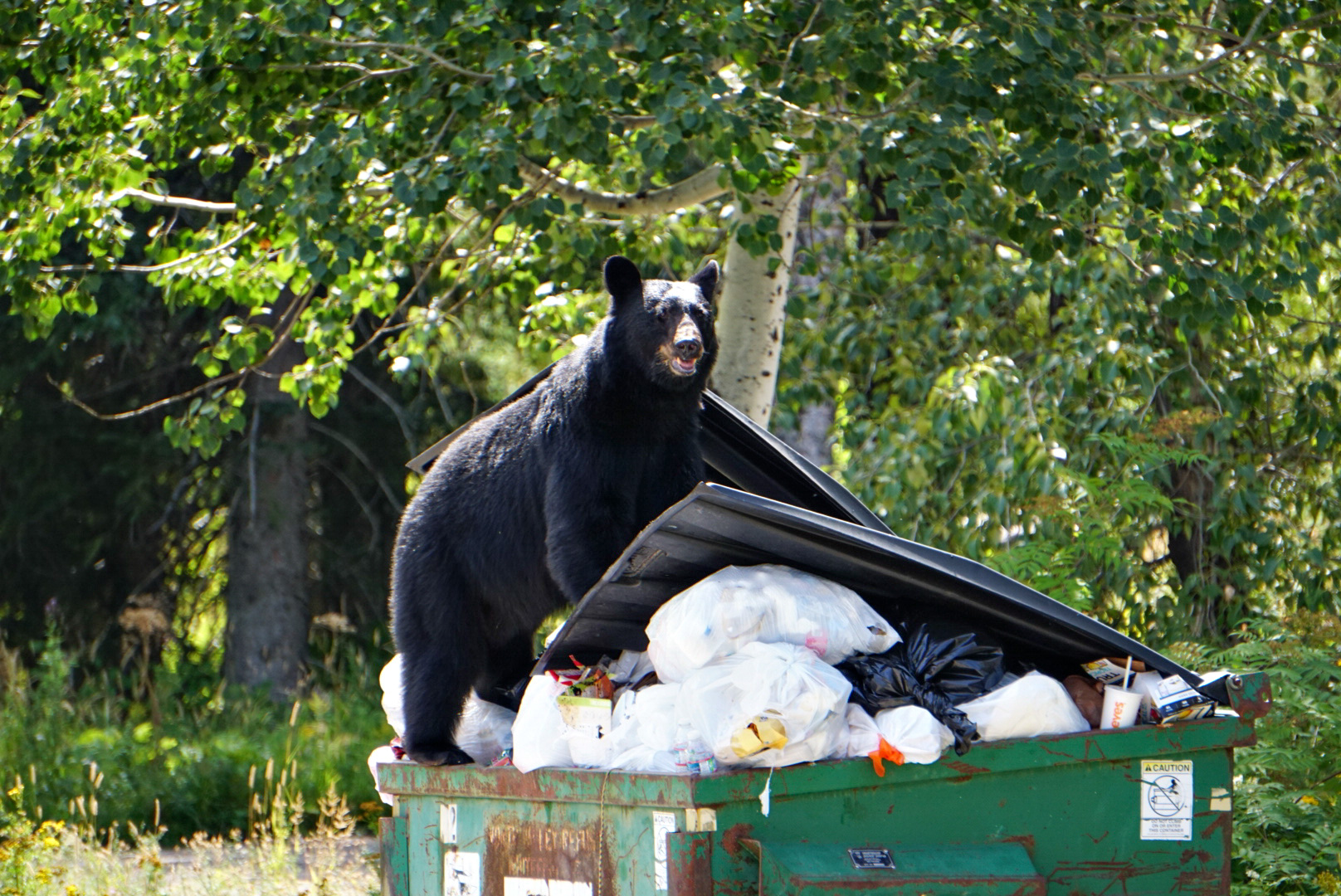At least 19 black bears are tipping garbage cans and feasting on fruit trees in Whitefish’s urban center, according to local wildlife officials, adding urgency to their annual public service announcement reminding residents to either use bear-resistant garbage containers, or store garbage containers indoors until the day of trash collection to avoid conflicts with bears.
The city of Whitefish has an ordinance requiring homeowners to store individual garbage cans indoors until the day of collection or have an animal-resistant container, which are not currently provided to all residential neighborhoods through the city’s service contract. Under the statute, unsecured trashcans cannot remain at the curb in the days prior to a pickup.
FWP has been receiving numerous daily reports of bears getting into unsecured food attractants, primarily garbage and domestic fruit, across the region, but the activity is substantial in Whitefish. The reports span the entire river corridor tracking along Baker and Wisconsin avenues, as well as on East Lake Shore Drive, with other sightings and encounters reported on Dakota, Minnesota, and Iowa avenues, as well as on Lion Mountain and State Park roads.
FWP also recently captured and moved a grizzly bear that was in the West Eighth and Ninth streets area near downtown.
Although all bears are potentially dangerous, most human-bear conflicts involve bears protecting their young or a food source. The overwhelming majority of human-bear encounters do not involve conflict and bears seldom attack or injure people.
However, bears that gain rewards from human food sources, such as garbage and domestic fruit, can become food conditioned, which means they lose their natural foraging ability and pose an increased risk to human safety. Food rewards can also lead wildlife to become habituated to people, another increased risk to human safety. Both food conditioning and habituation often lead to euthanizing an animal for safety reasons.
FWP can attempt to capture and move bears away from residences before they are food-conditioned or habituated but trapping is difficult in urban areas. On average, it takes up to two days to capture a bear and longer if there are cubs accompanying an adult female. If a trap captures a cub and separates it from its mother, it creates a significant public safety threat. Also, it is very difficult to lure a bear into a trap when there are abundant human food sources such as garbage in the area.

“The bear activity in Whitefish is on the rise,” FWP Wildlife Conflict Specialist Erik Wenum said. “We’re asking for help from residents who can do their part to address this issue by properly storing their garbage and removing other food attractants such as domestic fruit. This will help improve public safety and prevent the lethal removal of these bear families.”
A Facebook page named Flathead Fruit Gleaning works to connect residents who want to pick up fruit with those who need fruit picked up. Learn more at https://www.facebook.com/FlatheadFruitGleaning/. Residents can donate fruit to the Grizzly and Wolf Discovery Center in West Yellowstone by dropping off the fruit at the FWP office in Kalispell the week of Sept. 20, from 9 a.m.-5 p.m., Monday-Friday.
In other bear activity, on Sept. 11 FWP bear managers captured an adult female grizzly bear and two cubs in the Trego area and moved the bears north of Upper Whitefish Lake on a remote section of state land. The bears were reportedly eating dog food near a residence. They did not have prior conflict history and the adult female was fitted with a GPS radio collar.
Please report conflicts to one of the nearest FWP bear management specialists in your area.
For a list of specialists, visit https://fwp.mt.gov/conservation/species/bear/contact. To report grizzly bear activity in Flathead County, call FWP bear management specialists at (406) 250-1265. To report black bear and mountain lion activity in Flathead County, call (406) 250-0062. To report bear activity in Sanders and Lincoln counties, call (406) 291-1320. For more information on being safe around bears, visit https://fwp.mt.gov/conservation/species/bear.
